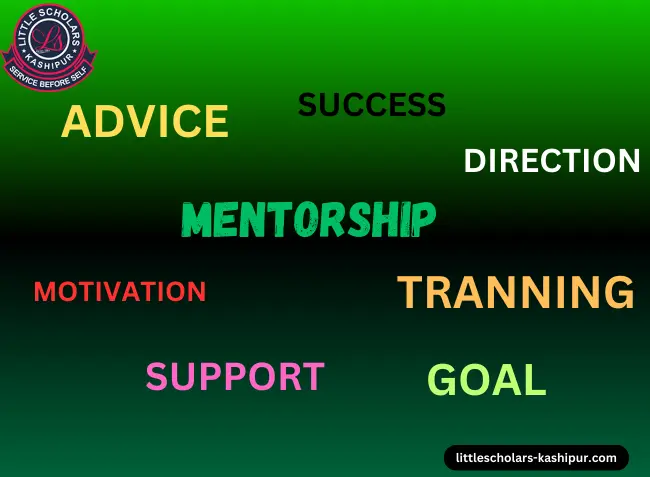Student skill development is a crucial aspect of education that goes beyond traditional classroom learning. While academic knowledge forms the foundation, the development of various skills is what prepares students for the real world. One effective way to foster these skills is through mentorship. Mentorship provides students with guidance, support, and opportunities to grow both personally and professionally.
What is Mentorship?
Mentorship is a developmental relationship in which a more experienced individual, the mentor, provides guidance and support to a less experienced person, the mentee. This relationship is built on trust, respect, and mutual understanding and aims to help the mentee achieve their personal and professional goals. Mentorship can take various forms, including formal programs within educational institutions or informal arrangements between individuals.
The Role of a Mentor
Characteristics of a Good Mentor
A good mentor is someone who is knowledgeable, empathetic, patient, and genuinely interested in the mentee's growth. They possess strong communication skills and are willing to share their experiences and insights. A mentor should also be approachable and supportive, creating a safe space for the mentee to express their concerns and aspirations.
Responsibilities of a Mentor
Mentors have several responsibilities, including:
1. Providing guidance and advice on academic and career matters.
2. Helping mentees set realistic goals and develop plans to achieve them.
3. Offering feedback and constructive criticism.
4. Acting as a role model and demonstrating positive behaviours and attitudes.
5. Encouraging mentees to step out of their comfort zones and take on new challenges.
Benefits of Mentorship for Students
Academic Improvement
Mentorship can lead to significant academic improvements. Mentors can help students develop effective study habits, time management skills, and learning strategies, resulting in better academic performance.
Personal Growth
Through mentorship, students can gain greater self-awareness, confidence, and resilience. Mentors provide emotional support and help students navigate personal challenges, contributing to their overall personal development.
Career Guidance
Mentors play a crucial role in helping students explore career options, identify their interests and strengths, and make informed decisions about their future. They can offer insights into different professions, share industry knowledge, and assist with job search strategies.
Types of Skills Developed Through Mentorship
Academic Skills
Mentorship helps students enhance their academic skills, such as critical thinking, problem-solving, and research abilities. Mentors can guide students in developing effective study techniques and improving their academic performance.
Social Skills
Mentorship fosters the development of social skills, including communication, networking, and teamwork. Students learn how to interact effectively with others, build relationships, and collaborate on projects.
Emotional Intelligence
Mentorship contributes to the development of emotional intelligence, which involves self-awareness, empathy, and relationship management. Mentors help students understand and manage their emotions, develop empathy towards others, and build healthy relationships.
Career-related Skills
Mentorship equips students with essential career-related skills, such as resume writing, job application techniques, and interview preparation. Mentors provide guidance on professional etiquette and help students develop the skills needed to succeed in their chosen careers.
How Mentorship Improves Academic Skills
Enhanced Learning Techniques
Mentors can introduce students to various learning techniques that enhance their understanding and retention of information. These techniques may include active learning, effective note-taking, and memory enhancement strategies.
Better Time Management
Mentors help students develop time management skills, enabling them to balance their academic responsibilities with other commitments. Students learn how to prioritize tasks, set deadlines, and manage their time effectively.
Goal Setting and Achievement
Mentors assist students in setting realistic and achievable goals. They provide guidance on how to break down larger goals into smaller, manageable tasks and offer support in tracking progress and staying motivated.
Developing Social Skills Through Mentorship
Communication Skills
Effective communication is a key skill that mentorship helps develop. Mentors teach students how to express their thoughts and ideas clearly, listen actively, and engage in meaningful conversations.
Networking Abilities
Mentorship provides students with opportunities to expand their professional network. Mentors introduce students to industry contacts, offer networking tips, and encourage them to attend events and connect with professionals in their field.
Teamwork and Collaboration
Mentors emphasize the importance of teamwork and collaboration. Students learn how to work effectively in teams, share responsibilities, and contribute to group projects, preparing them for future professional environments.
Emotional Intelligence and Mentorship
Self-awareness
Mentorship helps students develop self-awareness by encouraging them to reflect on their strengths, weaknesses, and values. Mentors guide students in understanding their emotions and behaviors, leading to greater self-awareness and personal growth.
Empathy and Relationship Management
Through mentorship, students learn to empathize with others and build positive relationships. Mentors teach students how to understand and appreciate different perspectives, communicate with empathy, and manage conflicts effectively.
Coping with Stress and Pressure
Mentors provide support and guidance on coping with stress and pressure. They help students develop resilience, stress management techniques, and healthy coping mechanisms, enabling them to navigate challenges more effectively.
Career Guidance and mentoring
Identifying Career Interests
Mentors assist students in exploring different career options and identifying their interests and strengths. They provide insights into various professions, share industry knowledge, and help students make informed decisions about their future.
Resume Building and Job Application Skills
Mentors offer guidance on creating compelling resumes and cover letters. They provide tips on how to highlight relevant skills and experiences, tailor applications to specific job opportunities, and stand out to potential employers.
Interview Preparation and Professional Etiquette
Mentors help students prepare for job interviews by conducting mock interviews, providing feedback, and sharing tips on professional etiquette. Students learn how to present themselves confidently, answer interview questions effectively, and make a positive impression.
Discover Little Scholars Kashipur: A Beacon of Excellence in Uttarakhand's Education Landscape: Read now
Real-life Examples of Successful Mentorship Programs
Case Study: Big Brothers, Big Sisters
Big Brothers, Big Sisters is a renowned mentorship program that pairs adult mentors (Bigs) with young mentees (Littles). The program focuses on building positive relationships and providing guidance and support to help mentees achieve their potential.
Case Study: STEM Mentorship Programs
STEM mentorship programs connect students interested in science, technology, engineering, and mathematics with professionals in these fields. Mentors provide guidance on academic and career paths, share industry knowledge, and offer hands-on experiences.
Case Study: Peer Mentoring in Schools
Peer mentoring programs in schools involve older students mentoring younger peers. These programs foster a sense of community, provide academic and emotional support, and help students navigate challenges and succeed academically.
Challenges in Student Mentorship
Finding the Right Mentor
One of the challenges in mentorship is finding the right mentor who matches the mentee's needs and goals. It requires careful consideration and compatibility to ensure a successful mentoring relationship.
Maintaining Consistent Communication
Maintaining consistent communication between mentors and mentees can be challenging due to busy schedules and other commitments. Regular and effective communication is essential for a successful mentorship experience.
Balancing Mentorship with Academic Responsibilities
Students often struggle to balance their mentorship commitments with academic responsibilities. Finding a balance between the two requires effective time management and prioritization skills.
Overcoming Challenges in Mentorship
Strategies for Effective Mentor-Mentee Matching
To overcome the challenge of finding the right mentor, institutions and programs can implement strategies for effective mentor-mentee matching. This may include conducting compatibility assessments, considering shared interests and goals, and facilitating introductory meetings.
Tools for Maintaining Communication
Utilizing communication tools and platforms can help mentors and mentees stay connected. Email, video calls, and messaging apps provide convenient and flexible ways to maintain regular communication and ensure consistent support.
Time Management Tips for Students
Students can overcome the challenge of balancing mentorship with academic responsibilities by developing effective time management skills. This includes setting priorities, creating schedules, and allocating specific time slots for mentorship activities.
Creating a Successful Mentorship Program
Steps to Establish a Mentorship Program
Establishing a successful mentorship program involves several key steps, including:
1. Defining the program's goals and objectives.
2. Recruiting and training mentors.
3. Matching mentors with mentees based on compatibility.
4. supplying mentors and mentees with continuing assistance and resources.
5. Evaluating the program's effectiveness and making improvements as needed.
Best Practices for Mentors
To ensure a positive mentoring experience, mentors should follow best practices, such as:
1. Building trust and rapport with mentees.
2. Setting clear expectations and boundaries.
3. Providing constructive feedback and encouragement.
4. Being accessible and responsive.
5. Continuously developing their mentoring skills through training and self-reflection.
Evaluating the Effectiveness of the Program
Regular evaluation of the mentorship program is essential to measure its impact and identify areas for improvement. This can be done through surveys, feedback sessions, and tracking mentees' progress and achievements.
Student Leadership Development: Nurturing Future Leaders: Read more
The Future of Mentorship in Education
Technological Advancements in Mentorship
Technological advancements are transforming the landscape of mentorship. Online platforms, virtual mentoring, and digital tools provide new opportunities for connecting mentors and mentees, regardless of geographical barriers.
The Growing Importance of Mentorship in the Digital Age
In the digital age, mentorship is becoming increasingly important. The fast-paced and ever-changing nature of the modern world requires students to adapt quickly and develop a wide range of skills. Mentorship provides the guidance and support needed to navigate this complex environment and achieve success.
Conclusion
Mentorship plays a vital role in student skill development, offering numerous benefits in academic, personal, and career aspects. By providing guidance, support, and opportunities for growth, mentors help students unlock their full potential and prepare for future success. The next generation of leaders and professionals must be raised through the funding of mentorship programs and the development of deep mentor-mentee connections.




